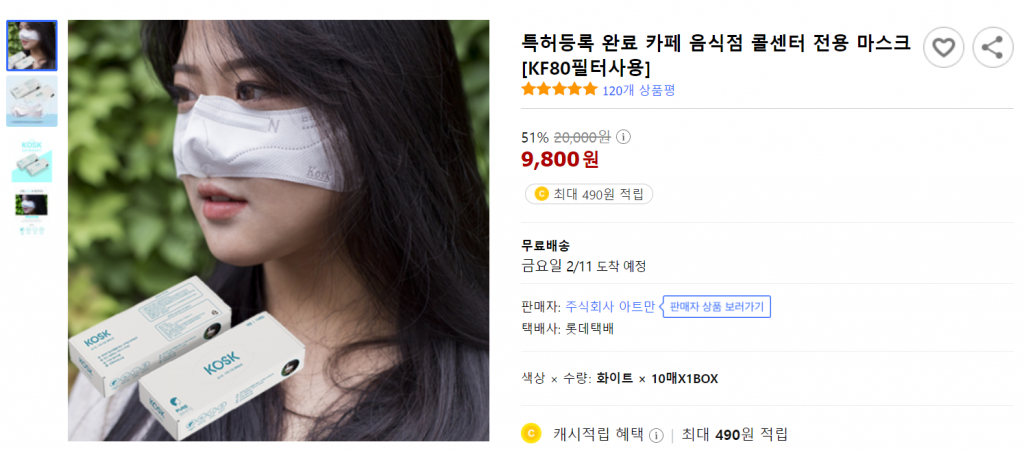The COVID-19 pandemic has made mask-wearing an everyday habit.
Several companies have allowed their creative juices to flow by creating various modifications of face masks. Some of the more interesting ones include Razer’s smart mask, Project Hazel, which was embroiled in a controversy recently.
And toilet paper masks. (Just kidding, it’s not actually effective).
You will be amused to find out that there’s a recent mask trend — involving only the nose.
South Korea’s Nose Mask Is Trending
Kosk is a blend of the words “ko”— the Korean word for nose — and “mask”. The mask can be folded upwards to cover the nose when consuming food.
Sold on the South Korean e-commerce website “Coupang”, the Kosk aims to provide an added layer of protection; rather than going entirely maskless when eating.

The website features pictures of its intended function; eating food while being “masked up”. The masks come in boxes of 10, and printed on these boxes are the words “Kosk” — in turquoise blue.
For now, a box sells at a promotional price of 9,800 won ($10.99).

A Hot Topic
Even though it was made available for sale since November last year, it recently became a hot topic for discussion among social media platforms like Tiktok.
Netizens have varying views about the mask.
Some netizens have pointed out that the mask is unlikely to be effective, given that viral particles can still enter via the mouth.


Others found amusement in the unique nature of the mask.


Yay or Nay?
For such a novel invention, it is perhaps a good idea to let experts weigh in.
According to Dr Stuart Ray, a professor of medicine at Johns Hopkins University, such a mask is “unlikely to reduce risk at all.” He added that “virus-containing aerosols would be able to travel via air whether travelling through nasal or oral passages.”
However, Kosk is not entirely futile.
Professor Catherine Bennett, chair in Epidemiology at Deakin University’s Institute for Health Transformation, mentioned that “it probably makes a marginal difference,” and it’s “better than nothing.”
Would you give wearing the Kosk a go?
Read Also:
- Company Charged for Making Over 430K Surgical Masks Without Licence
- New Study Shows People Who Wear Medical Masks Will Make Them More Attractive to Others
- Razer Now Says Their High-SES Masks Aren’t N95-Grade After Exposé by a YouTuber
Feature Image: Coupang.com
Would you be jailed for being half-naked in public? Well, the answer will shock you. Seriously. Watch this to the end and you'll understand:




